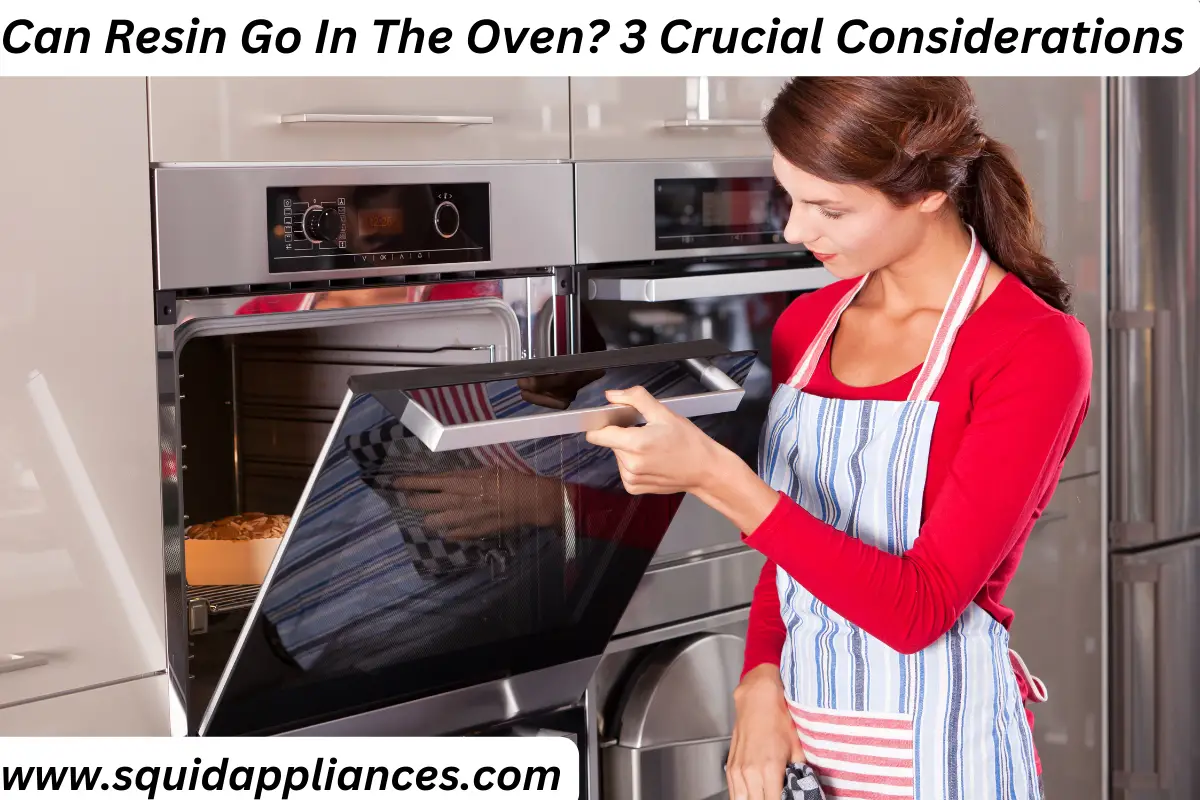Can resin go in the oven?
This is a question that many DIY enthusiasts and artists often ponder. In this article, we will explore three crucial considerations when it comes to using an oven for resin curing.
Firstly, understanding the temperature limits and heat resistance of your specific resin is essential. Different types of resins have different temperature tolerances, so it’s vital to know if your particular resin can withstand the heat of an oven.
Secondly, potential hazards and safety precautions must be taken into account. Heating resin in an oven can release harmful fumes or even cause the resin to catch fire if not done correctly. It is crucial to follow proper safety protocols and use protective gear when working with heated resin.
Lastly, the effects on resin cure and quality need to be considered. Curing in an oven may result in uneven or incomplete curing, affecting the final strength and appearance of your project.
While using an oven for curing resin is possible, there are alternative methods that may yield better results. By considering these three crucial factors, you can make informed decisions about whether putting your resin in the oven is the right choice for your project.
Can Resin Go In The Oven?
Yes, resin can go in the oven, but crucial considerations are necessary. Understanding resin temperature limits is vital to avoid damage—oven curing poses risks like harmful fumes. Alternative curing methods, like using heat guns or UV lamps, may offer better results. Safety protocols and proper ventilation are crucial for a worry-free process.
Key Takeaways
- Understanding the temperature limits and heat resistance of your specific resin is crucial.
- Heating resin in an oven can release harmful fumes and cause the resin to catch fire if not done correctly.
- There are alternative methods for curing resin that may yield better results.
- Proper safety protocols and protective gear must be used when working with heated resin.
Temperature Limits and Heat Resistance of Resin
Did you know that resin has temperature limits and heat resistance that you need to consider before putting it in the oven? It’s crucial to understand these limitations to avoid damaging your resin projects.
Resin can withstand low temperatures, but exposure to high heat sources like ovens can cause it to warp or even melt. Additionally, using improper baking molds can lead to uneven heating and affect the integrity of the resin.
Always check the manufacturer’s guidelines for safe usage.
Potential Hazards and Safety Precautions
One important thing to keep in mind when working with resin and using an oven is ensuring proper safety precautions are taken into account. Resin toxicity is a potential hazard that needs to be addressed. It’s crucial to have proper ventilation in the workspace to prevent any harmful fumes from being inhaled.
Additionally, wearing appropriate personal protective equipment such as gloves and goggles is essential for minimizing any risks associated with resin exposure.
Effects on Resin Cure and Quality
Ensuring proper ventilation and wearing the right protective gear is vital in order to achieve flawless results when working with resin. When using an oven to cure resin, it’s crucial to prevent overheating. Excess heat can cause the resin to bubble or turn yellow, affecting its overall quality and appearance.
It’s important to carefully monitor the oven temperature and avoid exceeding the recommended curing temperature for your specific type of resin to maintain optimal color and cure.
Alternative Methods for Curing Resin
If you want to explore different ways to cure your resin, you can try out alternative methods that offer unique and exciting results. One option is using heat sources such as a heat gun or hairdryer to accelerate the curing process.
Another method is DIY curing using items like a UV lamp or a toaster oven. These alternative methods provide flexibility and allow for experimentation with resin curing techniques.
Expert Tips and Recommendations
To get the best results when curing your resin, it’s important to take note of expert tips and recommendations. Here are some crucial considerations:
- Proper ventilation is essential for resin curing to ensure the safety of both the artist and the environment.
- Different types of resin require different curing times, so it’s important to follow the manufacturer’s recommendations.
- Pay attention to temperature and humidity levels in your curing space, as they can affect the final outcome of your resin project.
- Consider using a UV lamp or heat gun to speed up the curing process if necessary.
Frequently Asked Questions
Can I use any type of resin in the oven?
I can use certain types of resin in the oven as long as I follow safety guidelines. It’s important to consider the resin’s heat resistance, curing temperature, and any potential toxic fumes that may be released.
What is the maximum temperature that resin can withstand in the oven?
The maximum temperature that resin can withstand in the oven depends on its compatibility. It is important to consider the resin’s heat resistance properties and follow manufacturer guidelines to prevent damage or hazardous reactions.
Are there any health risks associated with curing resin in the oven?
Curing resin in the oven poses potential health risks, such as toxic fumes and chemical exposure. Precautions include proper ventilation, wearing protective gear, and avoiding direct contact with the resin. Alternatives like UV curing may be safer options to consider.
Will curing resin in the oven affect its final appearance or quality?
Curing resin in the oven can have a significant impact on its final appearance and quality. The effect of oven temperature must be carefully considered to prevent discoloration, warping, or degradation of resin properties.
Are there any other methods for curing resin besides using the oven?
There are alternative curing methods for resin besides using the oven. Some options include UV light curing, heat guns, and torches. Each method has its pros and cons compared to oven curing.
Conclusion
In conclusion, it’s crucial to consider the temperature limits and heat resistance of resin before placing it in the oven. Failure to do so can lead to potential hazards and safety risks.
Additionally, curing resin in the oven may have negative effects on its cure and overall quality. It’s advisable to explore alternative methods for curing resin that can ensure optimal results.
Following these expert tips and recommendations will help maintain the integrity of your resin projects while ensuring a safe working environment.






